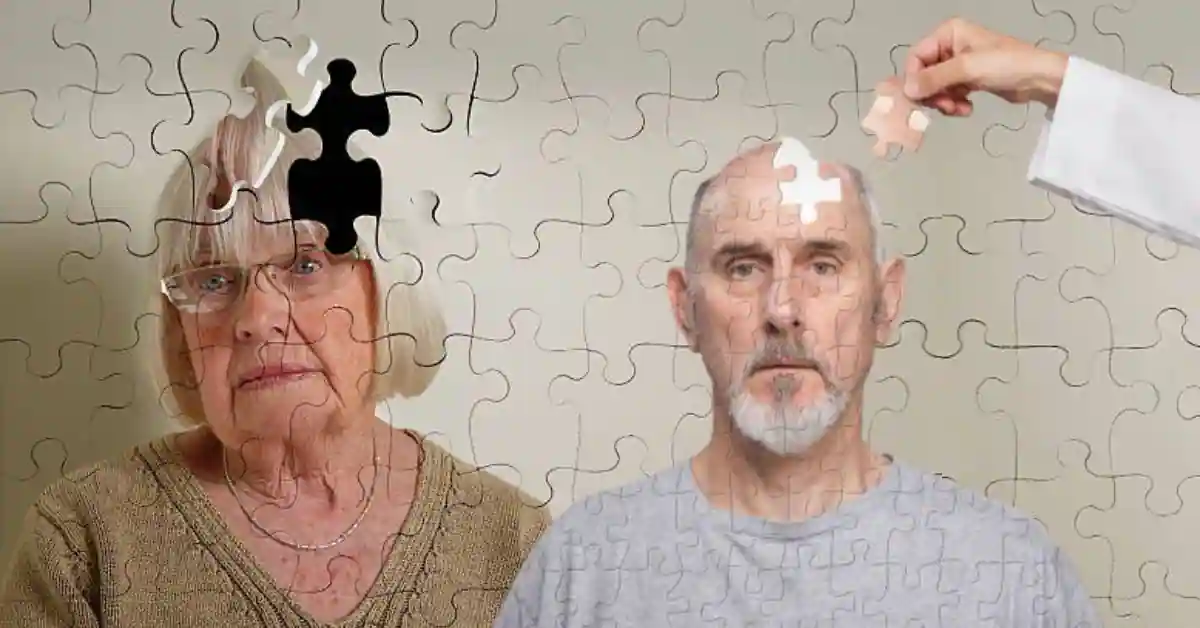Can taking a daily multivitamin help slow down cognitive aging? It’s possible.
A new study discovered that older adults who took a multivitamin every day for three years experienced a slight improvement in their memory after one year, in comparison to those who took a placebo (a sugar pill).
At the beginning of the study, 3,560 adults over the age of 60 were asked to learn 20 words using a computer program. Each word was shown for three seconds before the next one appeared. Immediately after, participants had to type all the words they could remember.

After one year, the study retested the participants and found that those who continued to take a daily multivitamin were able to remember, on average, almost one additional word compared to those who took a placebo. Although the effect was small, it was considered statistically significant, as reported in The American Journal of Clinical Nutrition on Wednesday.
According to the lead study author, Adam Brickman, a professor of neuropsychology at Columbia University’s Taub Institute for Research on Alzheimer’s Disease and the Aging Brain in New York City, the improvement in memory persisted throughout the study and was more significant in individuals with a history of cardiovascular disease.
The findings of this study align with a previous study from September 2022, conducted by researchers at Harvard Medical School in Boston and Wake Forest University in Winston-Salem, North Carolina. The earlier study revealed that taking a multivitamin resulted in improvements in memory, overall cognition and attention, particularly among those with a history of cardiovascular disease.
Brickman stated, “In science, this type of replication is one of the pillars of believing your findings. So, we are thrilled about this replication because it provides us with additional confidence in what we are observing.”

“This study is interesting, but the differences observed are not substantial,” commented Dr. Jeffrey Linder, chief of general internal medicine at Northwestern University’s Feinberg School of Medicine in Chicago, who was not part of the study.
Dr. Linder also expressed concern that taking a multivitamin may divert attention from more effective ways to enhance cognitive function, such as maintaining a healthy diet, engaging in exercise, staying socially active and obtaining sufficient sleep.
Although the study found a statistically significant improvement of less than a word, it would be challenging to determine if such a minor change would significantly enhance a person’s life, according to Dr. Richard Isaacson, an Alzheimer’s disease researcher and preventive neurologist at the Institute for Neurodegenerative Diseases of Florida, who was not involved in the study.
Dr. Isaacson stated, “This aligns with my belief that there is no ‘magic pill’ to prevent cognitive decline.” He further mentioned that at his clinic, they assess nutritional blood measures and tailor interventions accordingly and multivitamins are not typically recommended as they focus on addressing individual deficiencies.
Spin-offs from larger study
The new study and the Wake Forest-Harvard study were both additional analyses derived from a larger study called the Cocoa Supplement and Multivitamin Outcomes Study (COSMOS), which involved over 21,000 adults. COSMOS aimed to examine the effects of dietary flavanols from a cocoa extract supplement (not chocolate) on reducing cardiovascular disease and the use of multivitamins for cancer prevention.
The COSMOS cocoa study, published in March 2022, demonstrated a 15% decrease in cardiac events, such as heart attacks and a 27% reduction in deaths. However, the COSMOS study on daily multivitamin use did not find any benefits in preventing cancer.
Vitamins for the study were provided by Pfizer, an international biopharmaceutical company, while grant money came from Mars Edge, a division of Mars Inc. and the National Institutes of Health.
The study conducted by Brickman and his coauthors from Columbia University, New York State Psychiatric Institute, Brigham and Women’s Hospital and Brigham/Harvard Medical School followed participants for three years, assessing cognitive function annually.
Dr. Linder pointed out that the raw data only showed a significant impact on memory at the end of the first year, while the placebo group also exhibited improvement in the following two years.
The difference between the multivitamin group’s memory score of 8.28 words and the placebo group’s score of 8.17 words doesn’t seem clinically meaningful, according to Dr. Linder.
To analyze the data, the study team employed a computational model and conducted a correlation between age and performance on the memory test. This allowed them to estimate that the multivitamins’ effect at the end of the study was equivalent to slowing cognitive aging by approximately three years.
Pills vs. lifestyle changes
The study could not identify which specific vitamins or minerals in the multivitamin were responsible for the observed effect, according to Brickman. Further research is necessary to investigate individual components and determine if the improvement in memory is sustained over time.
According to Rudy Tanzi, a neurology professor at Harvard Medical School, previous studies have shown a connection between blood levels of certain vitamins like B12 and cognition. However, clinical trials investigating the benefits of vitamins on memory and cognition have yielded mixed results. Tanzi was not involved in the study.
In June 2022, the US Preventive Services Task Force released updated recommendations regarding the use of vitamin and mineral supplements. Despite reviewing 84 studies involving over 700,000 people, the task force reached the same conclusion as in 2014: Vitamin, mineral and multivitamin supplements are unlikely to provide protection against cancer, heart disease, or overall mortality.
“People are always searching for a magic pill to help them live longer, healthier lives and prevent diseases,” remarked Linder. “Well, guess what? It’s exercise. That’s the most important thing people should focus on.”
Hi, My name is Helena and I’m a founder of HealtHowdy.com. Over the years I’ve helped hundreds of people to live a healthy and fit life. Nowadays, Fitness is everything, if you want to Look Attractive and Get Updated, you can Join Me. WhatsApp